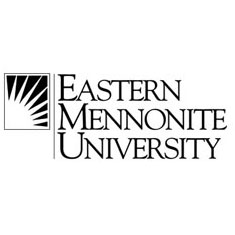
The signing occurred during a one-day visit to the EMU campus in Harrisonburg, Virginia, by President Meng Zhaohuai of Sichuan University, accompanied by five other administrators. “It was cold and rainy when we arrived, but now it is sunny,” said Meng through an interpreter at a luncheon for the delegation. “That is a sign of our friendship.”
Provost Fred Kniss met with the delegation, signed the agreement and hosted the luncheon, along with two vice-presidents and other university leaders. (EMU President Loren Swartzendruber was not present due to previous commitments in other states.)
The two universities do not overtly resemble each other. Sichuan is a public university of 11,000 students in Dazhou, a city of 800,000. EMU is a private church-rooted school of 1,800 in Harrisonburg, Va., with a population of 50,000. But the leaders of both institutions emphasized their mutual interest in cultural exchange.
The two schools have been interacting for 16 years through Mennonite Partners in China, which places English teachers at Sichuan University of Arts and Science and many other schools. In turn, Sichuan sends visiting scholars to EMU. (A current visiting scholar, Gu Juan, acted as the interpreter for the delegation during the EMU visit.) A cross-cultural group from EMU will spend some time there later this year.
Mennonite Partners in China, formerly known as China Educational Exchange, is sponsored by four international Mennonite organizations. It is headed by Myrrl Byler, who accompanied the Sichuan delegation on its three-day visit to the United States.
Sichuan promotes international interaction by, among other things, forging exchange agreements with universities in six countries. EMU’s biggest international program is the requirement that all undergraduate students participate in a cross-cultural experience. Most students do a study-service tour in another country before graduation.
“Sichuan University of Arts and Science is the kind of school we like to relate to,” said Byler. “It is in a more rural area of China and needs help connecting with the outside world.”
While at EMU, the Sichuan delegation visited three academic departments – Language and Literature hosted by professor Mike Medley, Intensive English hosted by director Kathleen Roth, and Visual and Communication Arts hosted by two students who had been in China on an EMU cross-cultural.
“This program is a mixture of the traditional arts and newer media,” said senior Emma King.
The Chinese delegation and their translator and their American hosts then began discussing the use of “newer media” and “digital media” and “social media” and several Chinese phrases. The terminology in communication, media and computer technology keep changing, they agreed, in both English and Chinese.
In addition to President Meng, the Sichuan University representatives were:
- Deng Jie, director of educational administration
- Yu Wengsheng, director of international exchange and cooperation
- Du Songbai, dean, College of Literature and Journalism
- Feng Jin, professor, College of Culture and Communication
- Li Xuemei, dean, College of Foreign Languages
Article by Steve Shenk










